Wayfinding and Signage: A Guide for Businesses
Let’s say you’re late for an interview or an important meeting at a new office, and as you enter the building, you suddenly realize you don’t know where to go. You look around and you see a sign directing you to the correct office, and you head in that direction.
Although it may seem like divine intervention, this sign is actually a navigational tool called a wayfinding sign. Wayfinding helps visitors familiarize themselves with their surroundings and navigate buildings. Learn more about how wayfinding signage helps increase customer satisfaction and build brand awareness.
What is wayfinding?
Wayfinding is an informational system that guides people through a physical environment, often in urban settings like office parks. It allows people to travel to new places while learning about where they are.
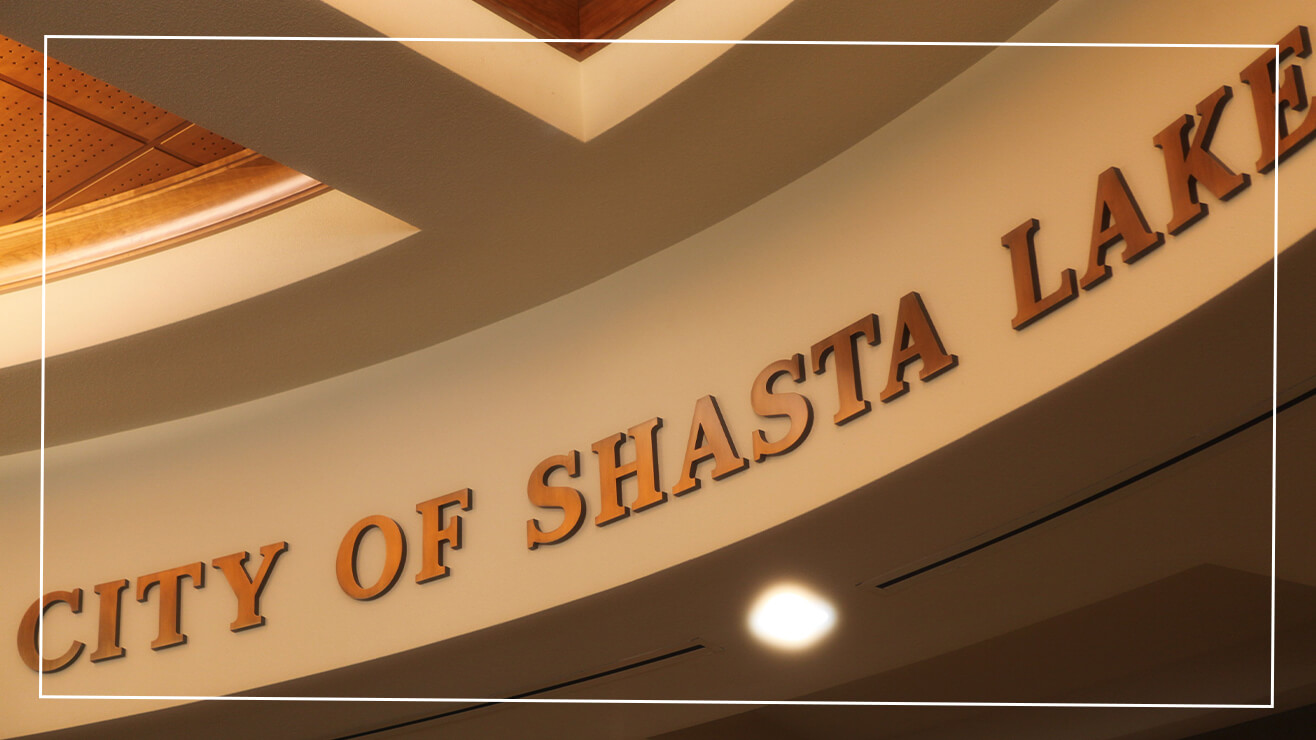
Wayfinding can help you navigate landmarks, attractions, and essential buildings such as hospitals, hotels, and public transit hubs. It doesn’t always have to be a full sign — for the outside of buildings, you can install metal letters that spell the business or school name.
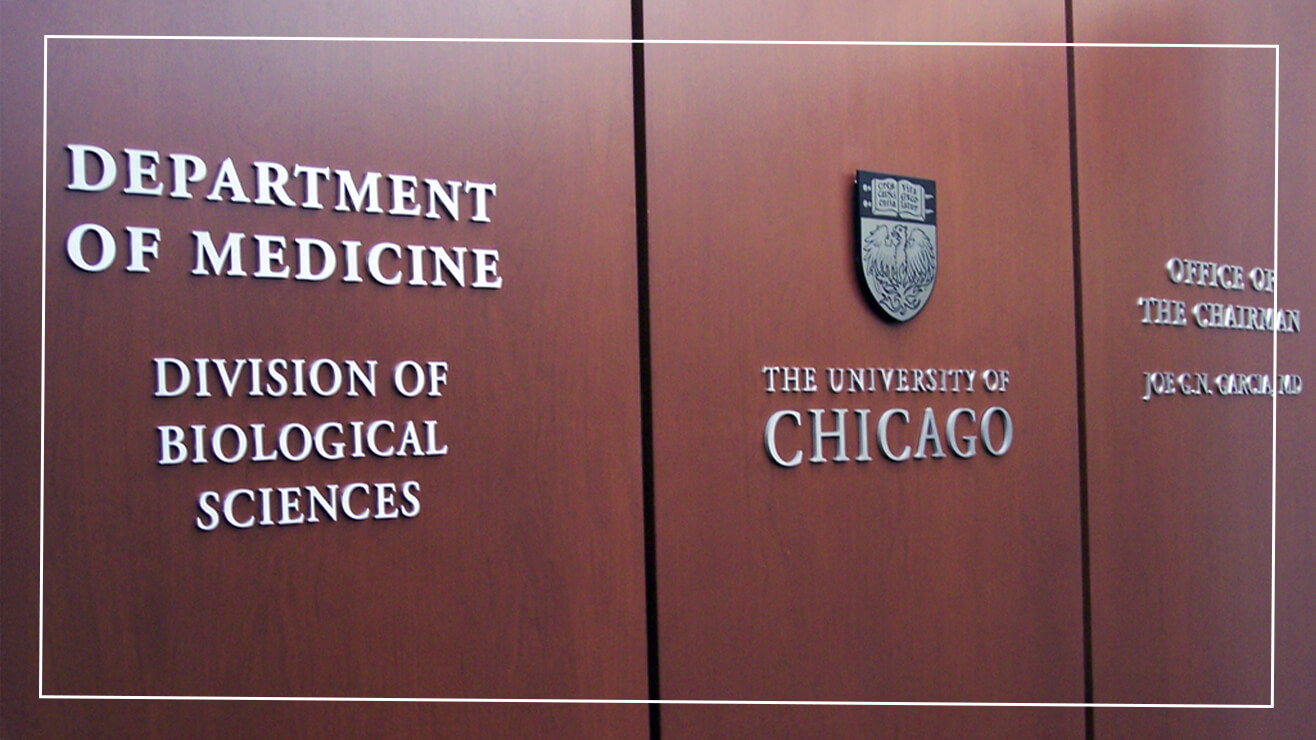
However, it isn’t limited to the outdoors; an office lobby sign can help direct you to a particular department in a hospital or to the cafeteria in a school. Different businesses may even need to deploy lobby signs to let visitors know if they are in the correct unit. Each of these applications is an example of wayfinding.

Types of wayfinding signage
In its simplest version, wayfinding is a form of visual communication that uses signs and other identifications to mark areas. However, there are several types of wayfinding signage used for different purposes.
Identification
Identification is one of the most common types of wayfinding signage. It works by labeling where a person is, usually with a sign. General examples include:
- Door plaques
- Department markers
- Landmark signage
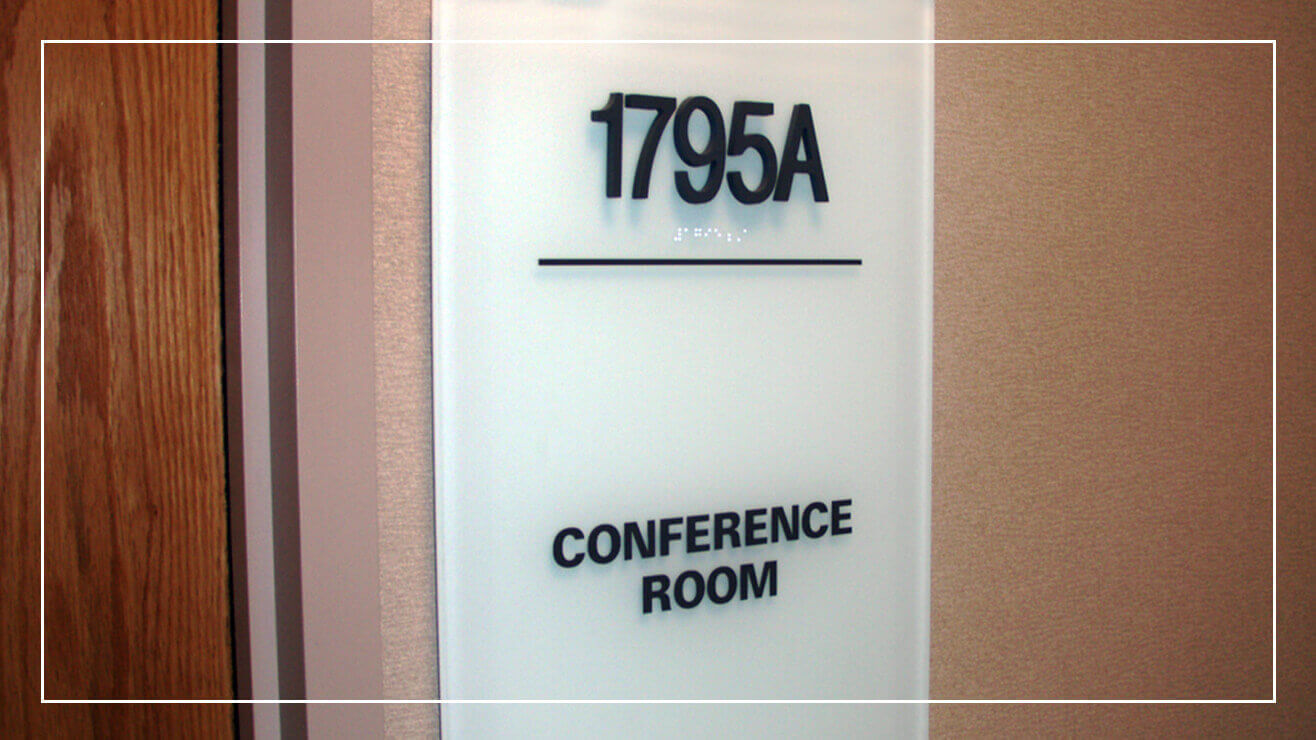
With wayfinding signage, the simpler, the better, as it makes it easier for visitors to find exactly what they’re looking for.
Directional
If identification signage helps people figure out where they are, directional signage gives them the tools to know where they’re going. They’re the metaphorical (sometimes literal) arrows directing traffic to separate destinations.
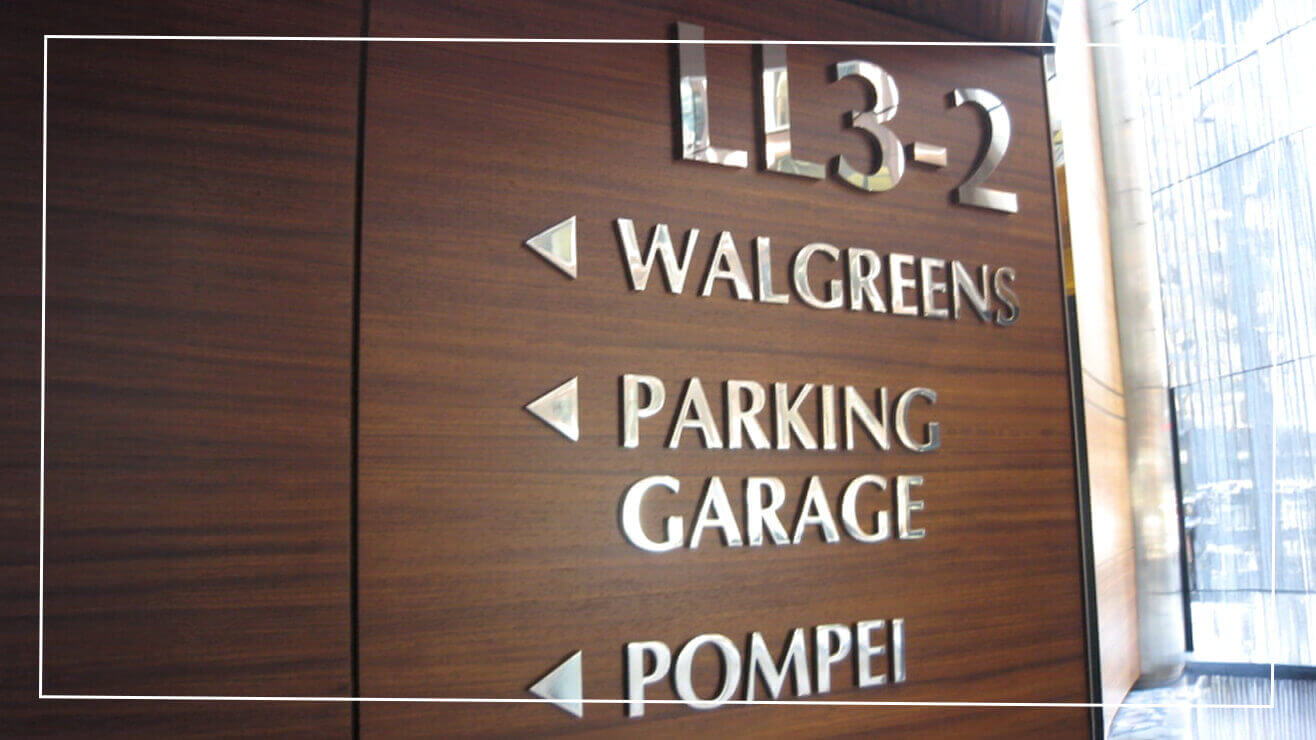
Some examples of directional signs would be:
- Junction signage
- Color lines on the floors
- Directories
- Arrows
Consistency in directional signage is important for helping people find their way through a building, park, or other area. For example, if you use a blue line to signify a path to an office, don’t change the color or line style halfway. Keep it consistent for ease of use.
Informational
Informational wayfinding signage is like the communication hub of a building or office’s wayfinding system. Informational signs provide context and understanding of the area and services provided.
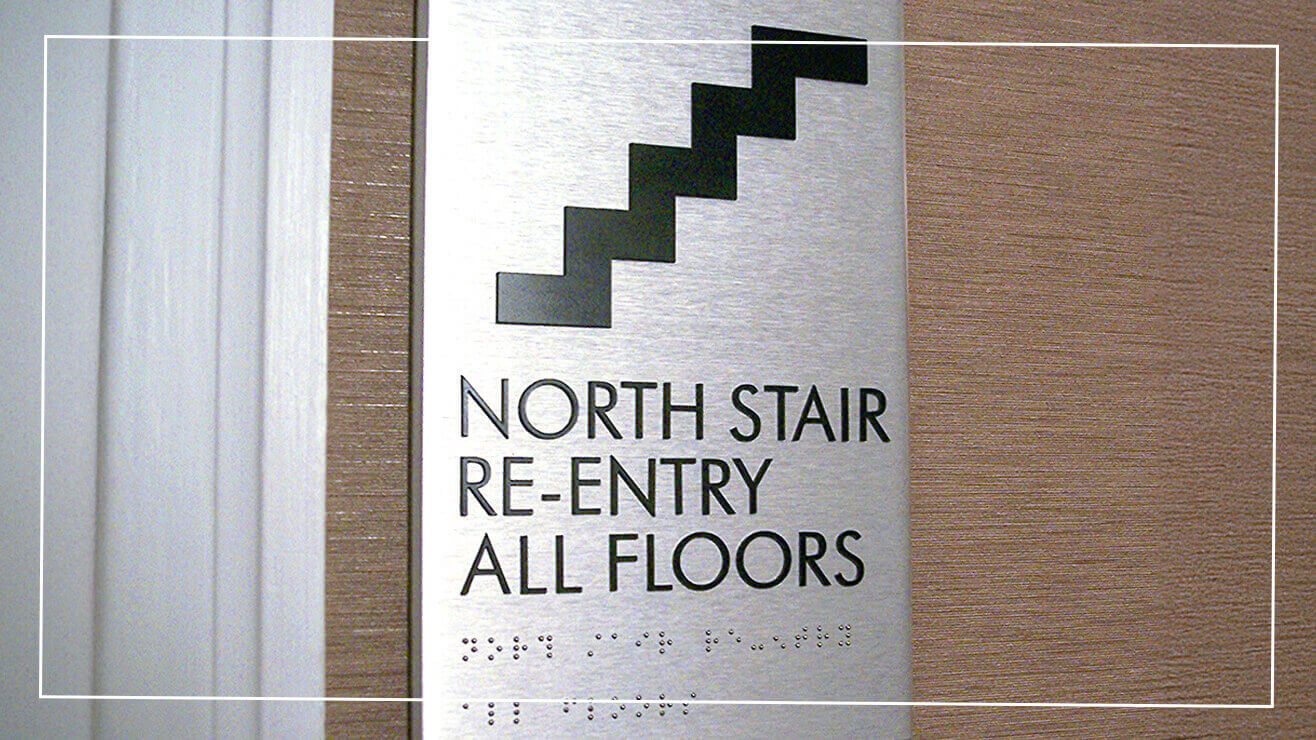
These signs can provide any type of information, including:
- Amenities and accommodations (stairs, Wi-Fi, etc.)
- Facilities (restrooms, break rooms, etc.)
- Important information (fire exits, health guidelines, etc.)
- Business information (address, opening hours, etc.)
Informational signs are placed in areas with large exposures for universal understanding. Oftentimes, they’ll only have symbols, like a telephone or restroom sign. In places like a museum or gallery, informational signs can provide contextual information for the pieces.
Regulatory
Regulatory signage focuses on providing a safe and effective environment through clearly defined boundaries. It reinforces rules and regulations to protect everyone and provide privacy when applicable.

Generally, these signs will show things like:
- Rules and regulations (e.g., no smoking)
- Compliance standards (e.g., ADA accessibility)
- Safety (e.g., trench ahead)
- Access control (e.g., guests only)
These signs are more authoritative and provide a clear understanding of what’s allowed in certain areas. Regulatory signs leave no room for interpretation; a locked door or roped-off area with a “No entry” sign establishes a clear rule for everyone who sees it.
Benefits of wayfinding signage
Wayfinding is an effective tool for any building or public area that improves safety, traffic, and user experience. The clearer the wayfinding signage, the better the visitor’s experience will be.
Improved navigation
Whether you’re a regular visitor or just walking into the area for the first time, wayfinding signs improve guidance and direction for everyone. This is especially true for any place with complex navigational requirements. In short, wayfinding will help people find where they’re going; the fewer people getting lost, the better.
Reduced stress and frustrations
Effective wayfinding reduces stress by preventing people from getting lost or confused. Knowing which way to go, what’s allowed, and where they are alleviates stress and frustration as they navigate their surroundings.
Enhanced safety
When done correctly, unambiguous signs enhance safety. Clear signs, directions, and emergency procedures ensure people know what to do and where to go in case of an emergency.
Increased accessibility
A primary goal of wayfinding is accessibility for everyone, including those with disabilities. Multilingual support makes a building accessible for visitors who don’t speak English. Braille and other sensory considerations can help visitors with visual impairments find their way around.
Boosted productivity
Wayfinding signage doesn’t just help your clients — it also helps your employees, especially when they are new. With proper wayfinding signage, your employees won’t waste time wandering in search of the copy room or the lunch room. Plus, they’ll be able to help direct any clients they meet to the right place.
Enhanced brand image
Physical branding is essential for promoting your brand, and wayfinding signs are a creative and effective way to do so. Use your brand’s colors and other visual elements for a consistent design. Well-designed wayfinding signs contribute to your overall image and create a tailored and thoughtful experience.
Improved customer satisfaction
Anything that makes customers’ lives easier improves their satisfaction with your brand. By eliminating guesswork, you provide a safe and welcoming place for your customers, which they’ll then attribute to your brand as a whole.
Essential wayfinding features
Wayfinding signage makes areas safer, improves foot traffic, and provides crucial context. The following features are essential for a successful wayfinding sign.
Clear and concise information
As wayfinding is informational, any wayfinding sign should provide clear and concise information, like:
- Destination names
- Directional arrows
- Distance indicators
- Floor numbers
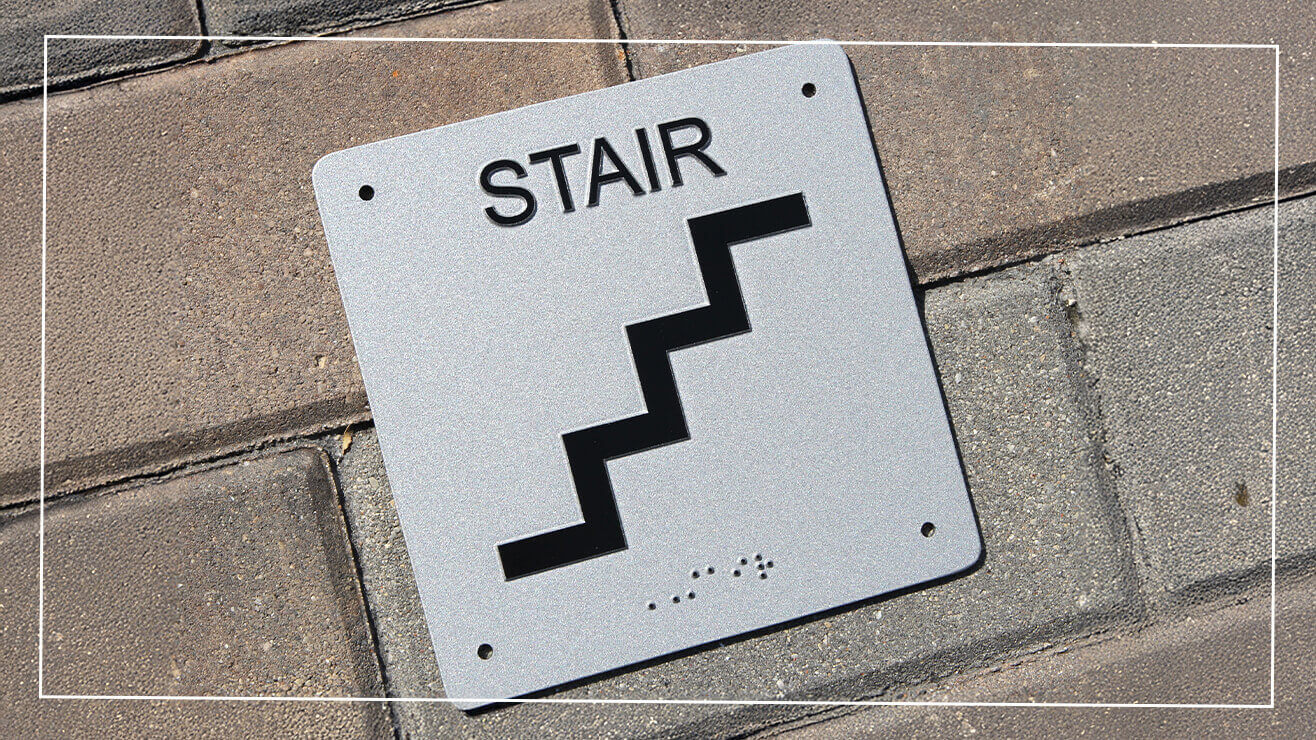
Without clear information, visitors will be left wondering where they should go and how to get there. Eliminating the guesswork improves accessibility and satisfaction for everyone, including those who may work there.
Consistent visual language
Consistency is key in maintaining a visual “language.” This means everything on the signs needs to be consistent; otherwise, you risk confusing your customers. Pay attention to things like:
- Color schemes
- Typography
- Symbols
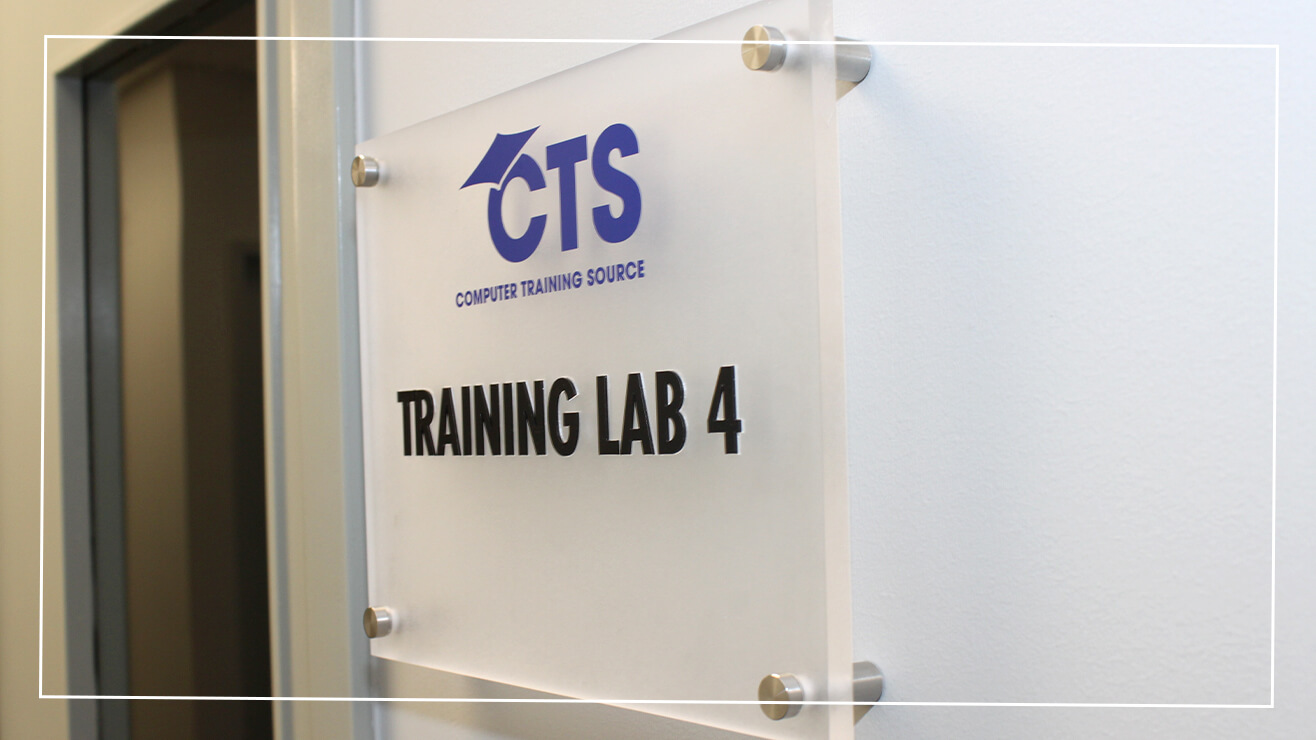
Knowing which colors or fonts to use can make or break your system. To start, browse the best fonts for signs and stick with your choice for all signage.
Strategic placement
When placing signs and plaques for wayfinding, it’s important to be as meticulous as possible. Strategically placed signs are critical to a building’s wayfinding features. Look for places that are appropriate for your signs and consider:
- Visibility
- Signage height
- Frequency
- Traffic
- Accessibility
Knowing where and when to install signage can enhance the customer experience and accessibility by reducing confusion, improving pedestrian traffic, and providing important context.
Accessibility consideration
If you’ve been paying attention, accessibility should be at the forefront of your decision-making process. This includes:
- ADA compliance
- Multilingual support
- Sensory considerations
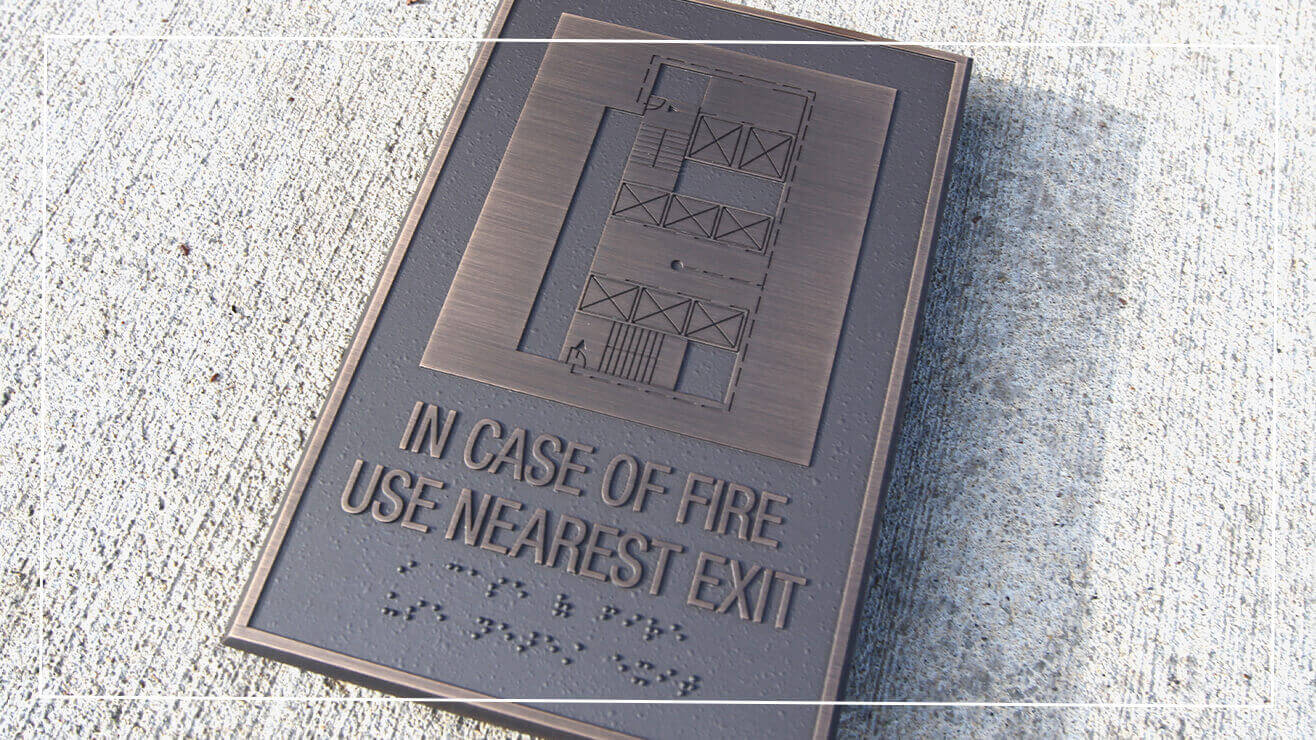
Clear and easy-to-read signs improve accessibility for everyone and ensure you meet all legal requirements. For example, there are requirements for building an ADA-compliant business, and following them will benefit both your business and your customers.
Regular maintenance
Like all things, wayfinding signs must also be regularly maintained for optimization. Some maintenance tasks include:
- Inspections
- Repairs
- Updates
- Routine upkeep, like cleaning
Regularly maintaining your signs comes with many benefits. Your business appears organized, your signs are easy to read, and you show that you care about your appearance.
Improve your business’s wayfinding with signage
Wayfinding signage is an important and effective tool for any business. Whether it’s restaurant signage or medical office signs, wayfinding improves visitor and user experience. If you’re looking to add some wayfinding signs to your building, get a quote from Impact Signs and start improving your customer experience.